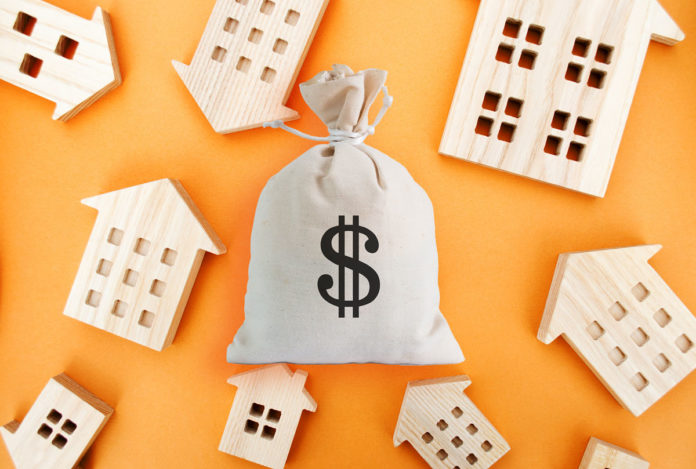Rapidly rising house prices are contributing to inflation but may also signal a housing market bubble. Overpriced real estate contributed to the financial crisis of 2008 and the Great Recession. Do we need to fear another housing crash in addition to inflation?
How much have prices gone up? The Case-Shiller index has jumped 35% since January 2020; between 1996 to 2006, this index rose 125%. Some markets have seen increases of nearly 45%. Prices in Alabama have increased at about the national rate.
What exactly is a bubble? A bubble refers to excessively high and rising prices for assets. What is too high? Consider how you could decide how much to pay for a house. One approach considers the value you would get from living in the house. This would depend on your income, other expenses, and preferences.
You could also answer based on what others would pay. You might only be willing to pay $100,000 to use a Florida beach condo. But if you could sell it for $500,000, you would gladly pay more than $100,000.
A bubble occurs when prices exceed the value in use, referred to as the fundamental value. High and rising prices can be self-sustaining. Someone might pay $500,000 for the condo to sell it for $700,000, and someone might pay $700,000 hoping it will go to $1 million. Eventually, the speculative bubble must burst because prices cannot rise to infinity.
Investors can lose lots of money in a speculative bubble. But investors spend their money and should be aware of the potential for loss. Bubbles can though have detrimental effects for the economy. Prices serve as signals. Builders will build more homes in response. But these homes will not be needed after the bubble bursts. Temporarily high prices might lead homeowners to make decisions they will later regret, like thinking their house will fund their retirement and saving less or borrowing against equity which then disappears.
Economists have developed new statistical tests to try to detect bubbles. One is produced by the Dallas Federal Reserve Bank. Any test for a bubble must estimate the fundamental value, or price based exclusively on use. The main one the Dallas Fed uses is the ratio of home prices to rents. Purchase prices and rents should be related since potential homebuyers could always rent instead.
This method then considers economic factors affecting the price-to-rent ratio. If economic factors drive up the price-to-rent ratio, this is not a bubble. Finally, they consider whether an observed increase in the ratio might occur by chance. When the price-to-rent ratio sufficiently exceeds that based on economic forces, we are in bubble territory.
The price-to-rent ratio has now been indicating a bubble for six consecutive quarters. When calculated retrospectively, this ratio indicated a bubble for a full decade before the Great Recession. It is not 2006 yet. And an index using the home price to income ratio has a weaker bubble signature.
No one statistical test will ever conclusively identify an asset bubble. Part of the reason is the same reason bubbles start: people disagree over future fundamental values. Many Americans have decided to move due to the COVID-19 pandemic. Remote work is allowing people to move out of cities. Others are fleeing blue states where governments enacted draconian COVID restrictions. Lumber shortages and price spikes related to COVID disruptions slowed home building. House prices may reflect economic forces after all.
The prevalence of bubbles is one reason economists disagree over the desirability of free markets. Markets prices are supposed to act as signals, as described, but bubbles produce unreliable signals. Markets will not effectively direct production with frequent bubbles. Free market economists see bubbles as relatively infrequent, unavoidable, and often caused by government.
What does a potential bubble mean for you or me? Would-be real estate moguls should exercise caution. Homeowners should be wary of capital gains they have not yet realized. If the Federal Reserve gets serious about controlling inflation, interest rate hikes may well burst a housing bubble.
Daniel Sutter is the Charles G. Koch Professor of Economics with the Manuel H. Johnson Center for Political Economy at Troy University and host of Econversations on TrojanVision. The opinions expressed in this column are the author’s and do not necessarily reflect the views of Troy University.
Don’t miss out! Subscribe today to have Alabama’s leading headlines delivered to your inbox.
